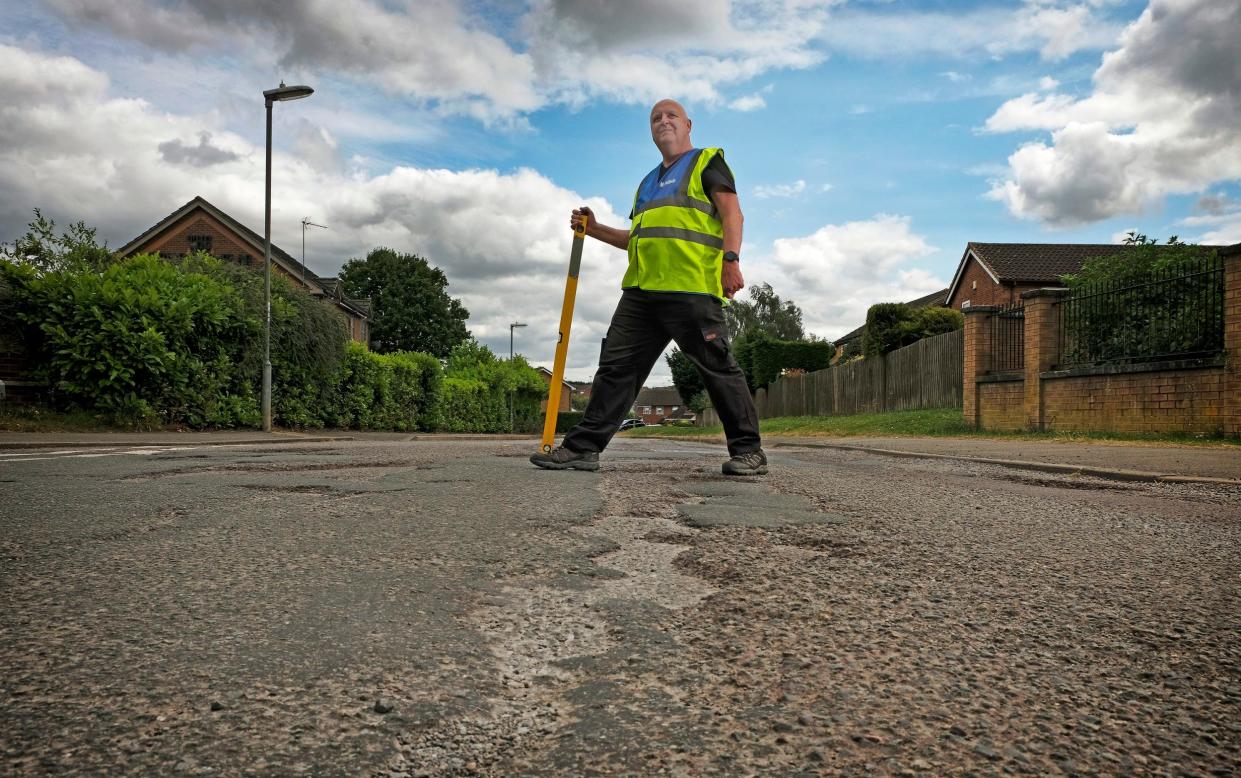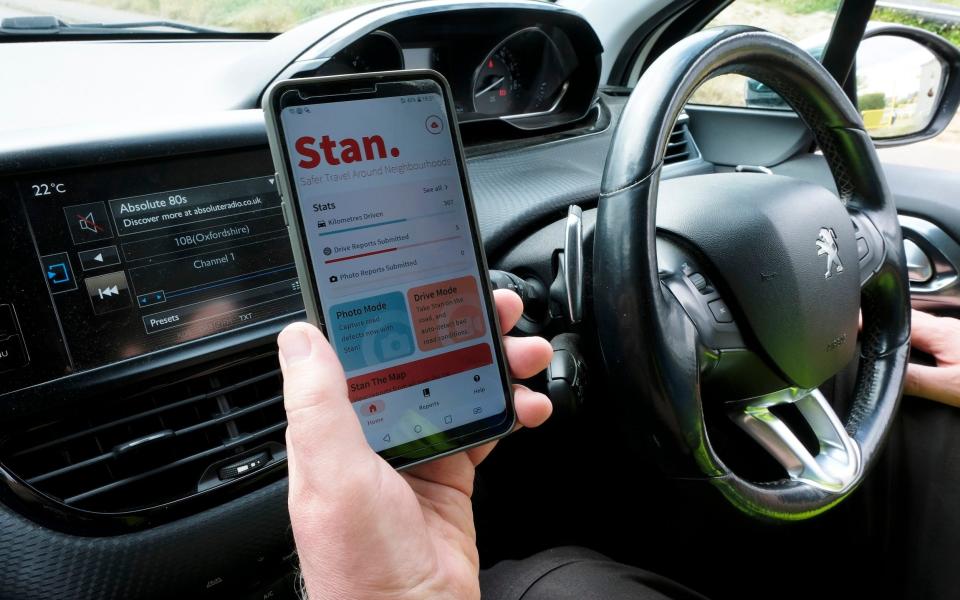Britain’s pothole problem ‘five times worse than estimated’

Britain’s roads are riddled with 11.5 million potholes, that is five times higher than previous estimates, according to a campaigner using data from a new AI dashboard app.
Data gathered by Stan the App, a mobile phone app that uses AI technology to detect and classify potholes, suggests that the true state of Britain’s roads is far worse than previously thought.
Mark Morrell, a veteran anti-pothole campaigner who styles himself as Mr Pothole, said data from Stan the App suggests there are 11.5 million potholes on the UK’s roads.
The news comes after the Asphalt Industry Alliance revealed in March that bringing all of Britain’s roads back up to good condition will cost £16.3 billion, a record high.
CEBR, the economics consultancy, said in April that potholes are costing the economy £14.4 billion a year in lost productivity.
The RAC, the British automotive services company, estimates that there are around 1 million potholes on the nation’s roads at any given moment, while about 2.2 million were repaired in 2023 alone.
Yet, footage collected from Stan the App’s 7,000 users has shown there are 1.5 million defects across just 13 per cent of the UK’s roads that it has mapped to date.

Mr Morrell said this shed fresh light on politicians’ promises to fix Britain’s crumbling highways.
“Finally, AI via Stan the App reflects the true awful condition of our roads,” he said.
“This app gives power to the public to survey the roads they use. I am not surprised by the 11.5 million potholes and defects on existing carriageways. I have been warning about this situation over my 11 years of campaigning.”
“Until the Government and the authorities face up to the massive challenge of resurfacing our roads, it will end up costing more and more.
If nothing is done to reverse the current situation, Mr Morrell claims that in fifteen years from now, more than half of Britain’s roads will have become “structurally unsound”.
The Conservatives pledged to hand £8 billion from the cancellation of HS2 into local councils’ coffers for road repairs, while Labour has said it will fund those same councils to repair a million road craters every year.
Stan the App uses AI technology to analyse video footage captured by ordinary drivers’ mobile phones.
Smart vision
Mike Mockford, a spokesman for Metricell, the company behind Stan the App, explained how the free-to-use software works.
“Smart vision is the ability for mobile phones to detect any object,” he said.
The app uses machine learning technology to detect potholes in footage of roads captured by motorists as they drive around the country on their everyday journeys.
“We’ve mapped out 12 per cent of the entire UK,” Mr Mockford said, a figure that has since risen to 13 per cent as more motorists install the app.
Stan the App has so far captured footage of around 45,000 kilometres of highways, ranging from major motorways to quiet B-roads.
As well as simply detecting potholes, the app can also say how wide and deep they are – an important consideration when some councils refuse to fill potholes which are below a certain size.
The answer to pothole woes
Motoring organisations, which have campaigned to improve British roads, welcomed the findings.
Rod Dennis, the RAC’s senior policy officer, said: “Drivers who are sick and tired of negotiating roads peppered with potholes know only too well how bad the problem across the country is – but up until now, there’s been little hard data to back that up.
“That’s all changing with Metricell’s excellent Stan app as for the first time we can see which roads are worst, as well as the local authorities that are doing a better job looking after them.
“What we need now is for the incoming government to address the problem head on.
“As well as more cash for councils, the answer to Britain’s pothole woes is to take preventative steps to extend the life of the roads under their control by surface dressing them to stop potholes forming in the first place.”
Work is underway
A spokesman from the Department for Transport said it did not recognise the figures, adding that the Government does not collect data on the number of potholes across England.
Claire Holland, the transport spokesperson for the local government association, said: “Councils already invite road users to report highways defects and any new ways that support this and make this easier is helpful.
“Whilst this information will help councils in their planning of road repairs, limited resources and a £16.3 billion backlog of repairs mean councils will need to continue to prioritise according to local circumstances, and want to focus on preventive measures where they can.
“Longer-term, whoever forms the next government should award council Highways Departments with five yearly funding allocations to give more certainty, bringing councils on a par with National Highways so they can develop resurfacing programmes and other highways improvements, tackling the scourge of potholes.”
A spokesperson for National Highways said: “The motorways and major A roads we are responsible for represent around 3 per cent of all roads in England. Our most recent assessment shows that over 96 per cent of them are in good condition.
“We undertake road condition surveys across our entire network every year and the results are used to identify resurfacing requirements. These defects are categorised and we aim to repair the most serious ones within 24 hours.”

 Yahoo News
Yahoo News 
